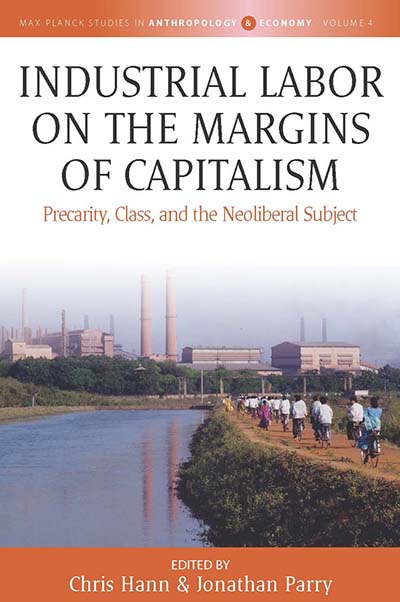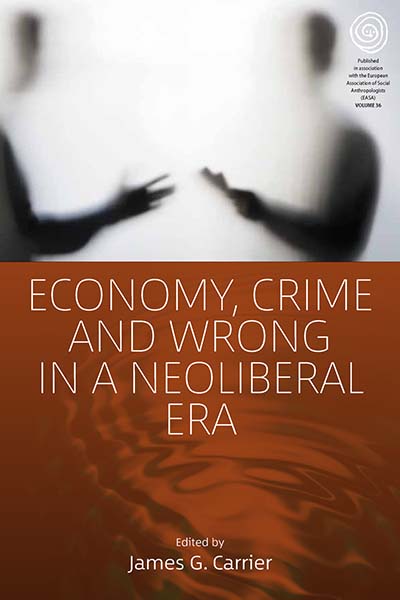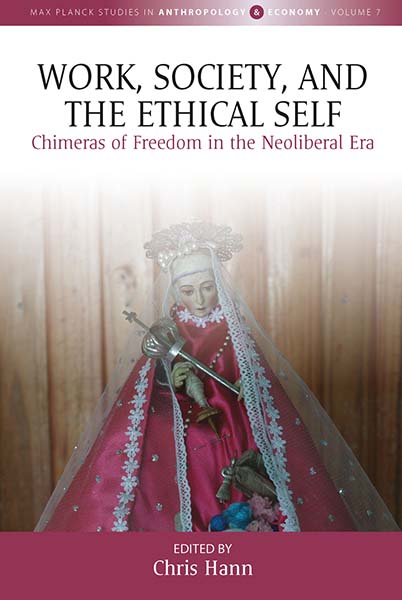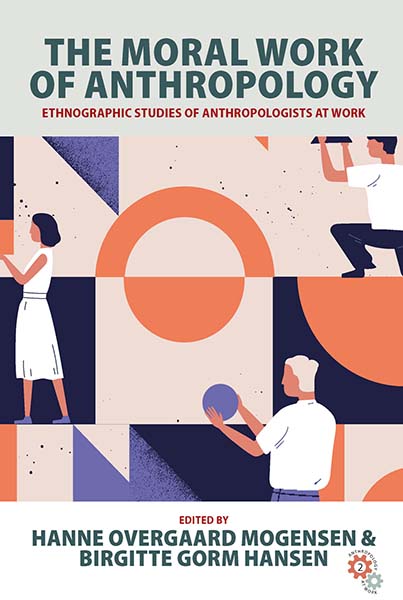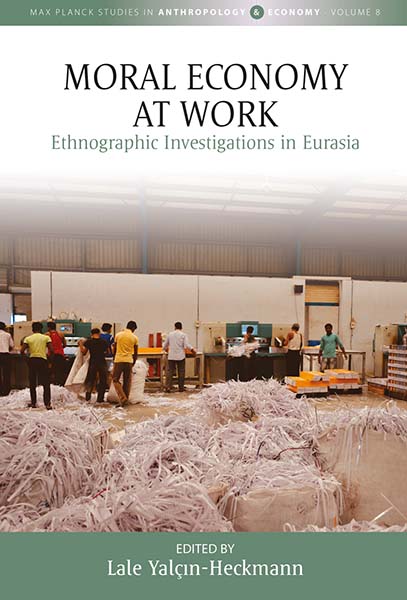
Series
Volume 8
Max Planck Studies in Anthropology and Economy
Email Newsletters
Sign up for our email newsletters to get customized updates on new Berghahn publications.
Moral Economy at Work
Ethnographic Investigations in Eurasia
Edited by Lale Yalçın-Heckmann
Afterword by James G. Carrier
Full Text PDF | Full Text ePUB Made available under a CC BY-NC-ND 4. license with support from Knowledge Unlatched.
208 pages, 4 illus., bibliog., index
ISBN 978-1-80073-235-3 $135.00/£104.00 / Hb / Published (October 2021)
ISBN 978-1-80539-116-6 $19.95/£15.95 / Pb / Published (September 2023)
Reviews
“This edited volume provides valuable insights into the lived experiences of ordinary citizens who do not neatly fit into the rational, autonomous, self-regarding maximizers category imposed by neoclassical economists. Taken together, this set of ethnographic studies shows that a sense of justice experienced by different social groups at work can give insight into moral aspects of economies throughout the world. Scholars in the fields of economic anthropology, development studies, and labor relations will enjoy reading diverse examples of these phenomena from a wide range of locations across Eurasia.” • Exertions
“Each chapter carefully contextualizes the social norms, values, and obligations of their respective local setting to demonstrate how the moral economy is at play in various work situations… This well-conceived volume would allow for an engaging discussion in undergraduate (both anthropology majors and non-majors) and graduate classes focusing on work, globalization, and capitalism.” • Anthropos
“Contains a set of impressive ethnographic studies from a wide range of locations, introduced and tied together by an extremely clear, thorough and strong Introduction by Lale Yalçın-Heckmann.” • Frances Pine, Goldsmiths, University of London
Description
The idea of a moral economy has been explored and assessed in numerous disciplines. The anthropological studies in this volume provide a new perspective to this idea by showing how the relations of workers, employees and employers, and of firms, families and households are interwoven with local notions of moralities. From concepts of individual autonomy, kinship obligations, to ways of expressing mutuality or creativity, moral values exert an unrealized influence, and these often produce more consent than resistance or outrage.
Lale Yalçın-Heckmann has been a senior researcher at the Max Planck Institute for Social Anthropology in Halle/Saale and teaches anthropology at the University of Pardubice, Czech Republic. She is the co-editor of Caucasus Paradigms: Anthropologies, Histories and the Making of a World Area (LIT Publishers, 2007) and author of The Return of Private Property: Rural Life after Agrarian Reform in the Republic of Azerbaijan (LIT Publishers, 2010).
Subject: Political and Economic AnthropologySociology
Moral Economy at Work Edited by Lale Yalçın-Heckmann is available open access under a Creative Commons Attribution-NonCommercial-NoDerivatives 4.0 International License (CC BY-NC-ND 4.0) with support from Knowledge Unlatched.
Full Text PDF | Full Text ePUB
OA ISBN: 978-1-80073-302-2
Contents
Download ToC (PDF)

